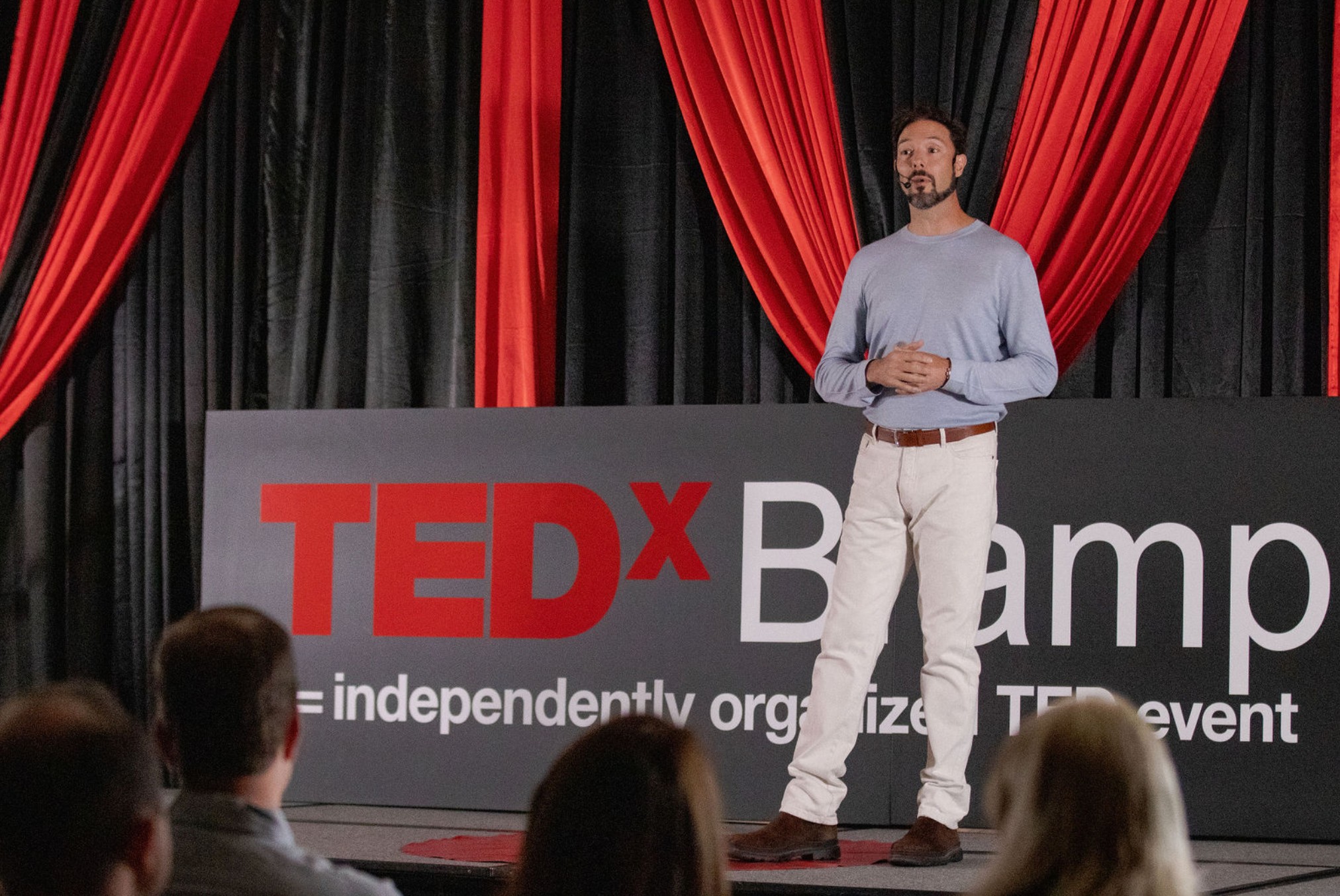Imagine you are walking alone down a desolate street, in some vast desert, when a car slows beside you. You begin chatting to the driver, talking about the whether and the rattlers. Then the driver says, “Well, I’d better get going or I’ll be late to the airport. Don’t want to be stuck in this awful place for a second longer than I have to.” As they say this, you notice their car is almost out of gas.
You suggest to the driver, that they might want to fill up on gas soon.
Their response shocks you: “Oh no, I can’t. I don’t have time to stop or I’ll be late, remember?”
And off they go to a certain fate…
“If you gave me 6 hours to cut down a tree, I’d spend the first 4 sharpening my axe.”
– Abraham Lincoln
So goes the famous idiom attributed to Abraham Lincoln, imparting a certain wisdom often overlooked by us type A, go-getters. In a culture where it’s admirable to burn the midnight oil, pulling consecutive all-nighters to finish that project in time, the advice of spending more time preparing than preforming, can seem counter-intuitive.
The subtle cues of society have convinced many of us that competency, commitment and value are shown by heroic swaths of monumental effort.
The harder you have to work, the more admirable and valuable both you and your work are.
This article will examine both this quote and cultural ethos in greater detail and hopefully give you some ideas on how to apply it to your life today.
First up, let’s discuss the statement in bold above: “The harder you have to work, the more admirable and valuable both you and your work are.”
Consider the rationale here. Two things must be true for your work and your worth (in a competency sense) to be highly regarded: you must work extremely hard and for a long time.Otherwise, the reasoning goes, if you don’t work very hard and it’s for a short time, what you produce will inevitably be sub-par.
This is certainly true, but only up to a point.
Imagine this: which sports team would you bet on?
Team 1 who always plays the most low percentage strategies, which take a long time and are quite hard to pull off?
Or…
Team 2 who plays high percentage strategies, which take much less time and are usually successful?
Most people would probably choose Team 2.
Now why is that?
Well, they are better at achieving their goal: to win.
Or consider which axe you would choose if, like Mr. Lincoln, you were told to cut down a tree by yourself? A sharp axe or a dull axe? Apply the reasoning of the statement we’re considering to this scenario and it becomes absurd; you would be left with no choice but to pick up the dull axe and work very hard for a very long time to accomplish your goal.
No one in their right mind would choose the dull axe, so why do people think that working longer and harder is always a good thing?
Of course there are times when no amount of planning or tools will make achieving your goal easier; all that’s left to do is grind your teeth and plow ahead as hard as you can, for as long as you can.
But thankfully, those times are few and far between.
What we need to consider when we’re endeavoring to do something is, what is our ultimate goal? Where are we going? Once we’ve established that, then we can take a look at the tools we’re using to get there. Are they clean and polished? Or do they need some sharpening?
My opinion is that the most admirable trait someone displays in accomplishing something is:
Efficiency.
If you follow sports at all, I want you to cast your mind back to something… Think of all the greats of sports history: Ali, Jordan, Federer, Nadal, Woods, Gretzky and then picture something very specific: how they move(d). Now which of them were painfully effortful and strenuous in their movements? Who among them always looked like they were trying to run through mud? “Inefficient” and “forceful” are adjectives no one would give to any of these icons.
They all move with the minimum amount of forceful effort to gain maximum effect.
It’s not that they don’t work hard but what they are doing is highly refined, for maximum economy to gain specific results.
And that’s part of what makes them amazing:
They’re not doing anything unnecessary.
That’s what we want to strive for in everything we do; as Bruce Lee said:
“It’s not daily increase but decrease. Hack away at the unessential”.
Because the more baggage we’re lugging around, the more forceful effort we’re applying to something, generally the more difficult it is to be productive. To get lots of things done well in a timely manner. The paradox of productivity is:
Sometimes the fuel that ignites our greatest level of productivity, is in our preparation not the actual work we do.
So, how do we do this?
Here are 2 tips to get you started, but the list of possibilities is a vast as you can imagine.
Tip 1:
Take A Nap
“What?! Heresy! ”
I know, I know.
In many people’s minds, there’s nothing more inexcusable than sleeping during the day.
But the scientific evidence is overwhelming and unanimous: taking even short naps in the day, massively benefit both your health and cognitive function. And working until you can’t think straight is not going to help you work better, it just makes life harder.
So don’t be a lazy bum and go take a nap!
Tip 2:
Take A Walk
Everyone knows that sitting to much is a killer, but less people know what to do about it.
So when you’re stuck on a problem, instead of banging your head against the wall with both hands, take a short lap around the office (or wherever you work). Movement increases mental acuity and boosts mood, so try it.
Your own personal pit stops during the day don’t necessarily have to be these two; they just need to be things that lift your mood and clear your mind.
Because no one is at their best when they’re unhappy and working with crappy tools.
So don’t deny yourself the gift of preforming with a gas tank as full as you can make it. And if you want to achieve the heights and quality of work you know you’re capable of, then you’ll need your bag of tools to be sharp and ready to get you there!
Remember, Albert Einstein loved to lay on hillsides gazing at the drifting clouds, daydreaming.
Let’s take a cue from a genius and rest so we can rock.
Challenge:
Here’s a set of practical challenges that you can do today, to improve the items discussed in this article:
- For 1 day:
Make time for one 5 min nap in your day.
You don’t need to fall asleep or even to lie down for it. Just find a quiet spot and practice relaxing for 5 mins on the clock. You’ll feel worlds better for it.
- Walk at least a half-mile after dinner.
Research (and ancient traditions) paint a clear picture: walking after a meal improves digestion. It also provides a great way to get out any remaining energy you may have before retiring for the night. So try and get a brief walk in after your final meal of the day.
- Write down 2 areas of your life where you know you could improve in.
Our problem spots in life are what (obviously) need the most attention. Put some of yours down on paper and reflect on how you might recover or sharpen your tools for dealing with any of these problems. It’s not easy but it’s worth it.




